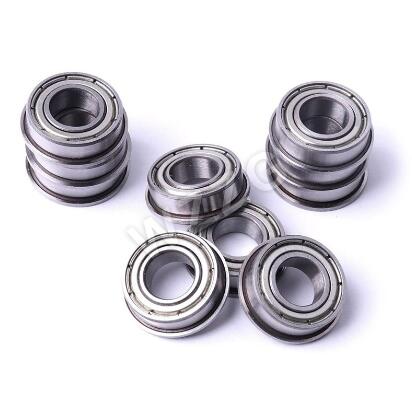The Benefits of Custom Bearings
In the world of engineering and manufacturing, precision is paramount. When standard bearings don't quite meet the unique demands of a particular application, custom bearings step in to bridge the gap. Custom bearings offer a range of benefits that can significantly enhance the performance, efficiency, and longevity of various systems. Let's explore the advantages of opting for custom bearings and how they can elevate your engineering endeavors.
1. Tailored Design to Specifications: One of the primary advantages of custom bearings is the ability to tailor the design to the exact specifications of your application. Whether it's an unconventional size, shape, or load capacity requirement, custom bearings can be engineered to fit seamlessly into your system, eliminating the need for compromises.
2. Enhanced Performance and Efficiency: Custom bearings allow engineers to optimize bearing characteristics for specific operating conditions. By tailoring the materials, lubrication, and internal geometry to your application's requirements, you can achieve enhanced performance, reduced friction, and improved energy efficiency.
3. Adaptation to Challenging Environments: Certain industries, such as aerospace, automotive, and industrial manufacturing, often operate in challenging environments. Custom bearings can be designed to withstand extreme temperatures, corrosive substances, and high levels of vibration, ensuring reliability and longevity even in the harshest conditions.
4. Noise and Vibration Reduction: Noise and vibration can affect the comfort, efficiency, and lifespan of machinery. Custom bearings can be engineered with features to minimize noise generation and vibration, resulting in quieter and smoother operation.

5. Optimization for High-Speed Applications: For applications that require high-speed rotation, such as precision machinery and robotics, custom bearings can be designed to reduce heat generation and friction, enabling the system to operate at elevated RPMs without compromising on performance.
6. Compatibility with Unique Interfaces: WZZG Custom bearings can be crafted to seamlessly integrate with unique interfaces and components within your system. This ensures proper alignment, reduced stress on surrounding components, and optimal load distribution.
7. Longevity and Reliability: Engineers can select materials, coatings, and lubricants tailored to the specific demands of an application. This customization contributes to the longevity and reliability of the bearings, minimizing wear and reducing the need for frequent replacements.
8. Cost-Effectiveness in the Long Run: While custom bearings may involve initial design and engineering costs, their ability to improve system performance and longevity can lead to long-term cost savings. Reduced maintenance, fewer downtimes, and optimized efficiency can offset the initial investment.
9. Flexibility in Design and Innovation: Custom bearings empower engineers to innovate and push the boundaries of what's possible. Whether it's designing unique mechanisms, achieving tighter tolerances, or introducing novel features, custom bearings provide the flexibility to explore new avenues of design and functionality.
10. Competitive Edge and Differentiation: Custom bearings can provide your products and systems with a competitive edge by offering unique features and performance advantages that are not achievable with off-the-shelf solutions. This differentiation can set your offerings apart in the market.
In conclusion, custom bearings offer a multitude of benefits that can elevate the performance, efficiency, and reliability of various systems. By tailoring design, materials, and features to match specific application requirements, engineers can achieve optimal functionality and address challenges that standard bearings might not address. From reducing noise and vibration to adapting to extreme environments, custom bearings provide a strategic advantage in industries where precision and performance are paramount.
193
0
0


Comments
All Comments (0)